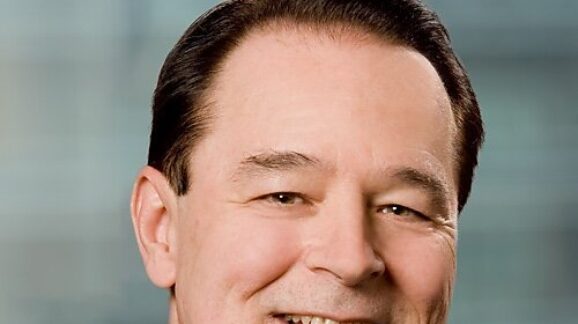David Boaz, 1953-2024

It usually begins with Ayn Rand. In my case, it began with David Boaz. David, the Cato Institute’s longtime executive vice president, passed away last week from cancer.
His book Libertarianism: A Primer, since reissued as The Libertarian Mind, came out when I was 15. It is the first policy book I read cover to cover. That book, along with meeting him at a Cato University conference about a year later, played a major role in my life’s journey. David has influenced thousands of other liberals, whether through his writings, his speeches, or the personal example he set.
It wasn’t just the content with David that mattered, though he was as erudite as any scholar. Nor was it just the way he delivered it, though he was a gifted communicator. Though famously detail-oriented, David saw the big picture.
He also cared about decency and professionalism in a way that few others do. This lesson deserves more attention than it gets.
David saw today’s libertarian movement as the current incarnation of a larger liberal tradition as old as civilization itself. Liberal elements appear in the Mesopotamian epic poem Gilgamesh, which is in some ways a warning against unchecked power.
Liberalism is found in the works of the Chinese philosopher Lao Tzu, who described spontaneous order more than 2,000 years before Hayek. The tradition carries on through Adam Smith, Milton Friedman, and today’s liberals, as David shows in the Primer’s companion book, The Libertarian Reader.
David knew that if you want to be taken seriously, you must be able to be taken seriously. The libertarian movement that David joined in the 1970s struggled with this. Like any non-mainstream political movement, it had more than its share of nuts, cranks, and assorted loons. Libertarians back then were mostly stereotypically awkward white males.
They were often less concerned with advancing liberal ideas than they were with trying to out-radical each other. It was macho, cliquish, and juvenile.
David, like a liberal William F. Buckley, knew that keeping the crazy out is a necessary part of advancing the liberal project. When given the chance to build an institution his way, that’s what he did.
That is why David insisted that Cato staffers dress professionally and be on time. That is why he insisted on rigorous, principled, nonpartisan scholarship, clearly argued to people in a position to do something to enact their ideas. David zealously guarded Cato’s brand and reputation, even though it rubbed others the wrong way at times.
His insistence on patient, principled, and sane advocacy also helped the liberal movement grow in both number and diversity.
Populism and conspiracy theories have made a comeback in the last decade. The trend has ruined several libertarian and libertarian-allied institutions who decided they prefer relevance over pursuing their missions. Safeguarding liberalism requires eternal vigilance, as David warned in his final public speech in February 2024:
So when you see self-proclaimed freedom advocates talking about blood and soil or helping a would-be autocrat overturn an election, or talking about LGBT equality as degeneracy, or saying we shouldn’t care about government racism against Black people, or defending the Confederacy and the cause of the South, or joining right-wing culture wars and supporting politicians who want to use the state to fight their enemies, or posting Holocaust jokes and death threats on Twitter, recognize that for what it is. Speak up, fight back, tell people that’s not America and it’s certainly not libertarianism.
More bluntly:
[W]hile it’s not actually un-libertarian to be anti-vaccine, it’s stupid, and I’d rather recruit smart people.
My first Washington job was at Cato. Seeing David at work instilled these and other lessons in me.
I was also impressed by how well he knew what everyone was working on. If I made a typo in the daily newsletter I sent out, he let me know. One morning I had a letter to the editor in the Washington Post that I didn’t tell anyone about, and that didn’t mention my Cato affiliation. He somehow still saw it and congratulated me on it as we walked into work.
He remained supportive long after I left Cato. Not too long ago, I posted on Facebook asking for advice ahead of appearing on C-SPAN’s Washington Journal, and David gave a useful piece of advice on preparation.
A common theme in the outpouring of tributes to David is that a lot of people saw his approval as a litmus test. David did not dole out compliments. But if he thought highly of your work and your character, he let you know. And it meant a lot.
The last substantive conversation I had with David was at a Cato event in Chicago in 2022. He was still settling into his role as an elder statesman after stepping back a bit from his everyday responsibilities. I felt both surprised and validated when he gave a genuine smile upon seeing me at the reception. I sat next to him for lunch. We talked about some Cato history, how some former colleagues were doing, and a bit about current events.
I also sent him a short note a few days before he passed. I don’t know if he saw it. That might be for the better, since upon reading it back I found a typo. But I hope he got the point that I and countless others wanted him to get: he lived a good life. He inspired thousands of people and left both the liberal movement and the world better than he found them, even with their current troubles.
It is a good irony that even though he sought no one’s approval, in 50 or 100 years, David Boaz will still be inspiring people, while today’s fame-chasing populists will be a cautionary footnote at most, as ephemeral as a news cycle. As it should be.